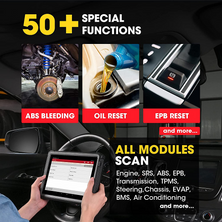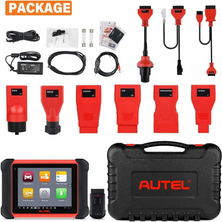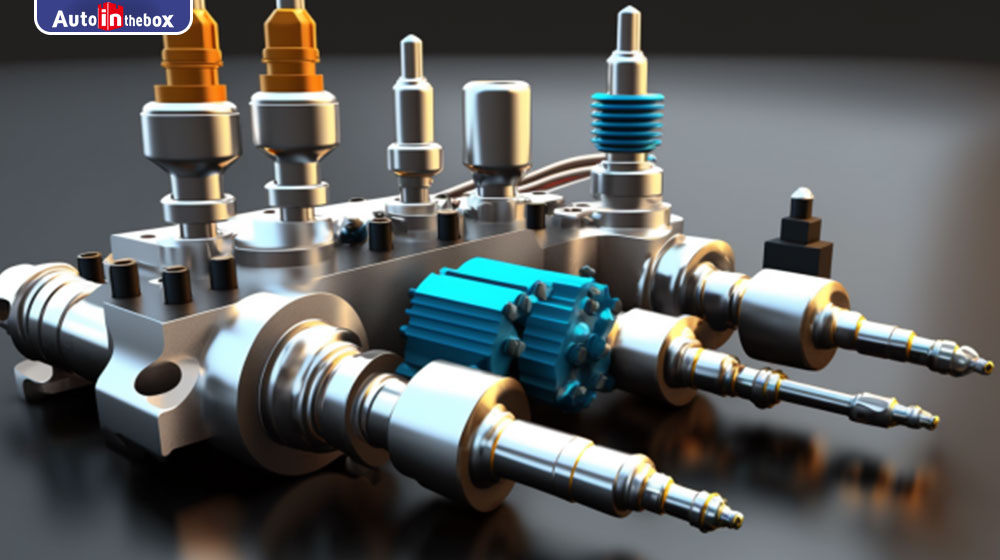
Have Problems With Your Gasoline or Diesel Fuel Injectors? How to fix it?
Gasoline or Diesel Fuel Injectors are essential components of a vehicle's engine, responsible for injecting fuel into the engine's combustion chamber. Their importance lies in their ability to control and regulate the amount of power delivered to the engine.
Recommended 2023 top car diagnostic tool: Autel MP808S,Autel MK906BT,Autel MS906pro ,Launch X431V+,Launch pros mini,Launch pro5
Gasoline or Diesel Fuel Injectors can exhibit several common symptoms, and their underlying causes are?
- Poor Fuel Economy: A significant decrease in fuel economy is often the first sign of a failing fuel injector. The injector may need to atomize fuel properly, resulting in inefficient combustion and wasted energy. Causes can include clogging or blockage of the injector or a malfunctioning fuel pressure regulator.
- Engine Misfires: A misfire occurs when the engine's combustion process is interrupted, resulting in a lack of power or a rough idle. A faulty injector may need to provide the correct amount of fuel, leading to incomplete combustion and misfires.
- Rough Idle: A rough idle is a common symptom of a bad injector. It can be caused by a partially clogged or faulty injector, which disrupts the engine's smooth operation at low RPM.
- Engine Performance Issues: If one or more injectors are not functioning correctly, it can cause a range of performance issues, such as sluggish acceleration, lack of power, and hesitation.
- Fuel Odor: A strong gasoline or diesel odor around the vehicle can indicate a leaking injector. The fuel may not atomize properly, causing it to leak out of the injector and onto the engine or exhaust components.
- Check Engine Light: A failing injector can trigger the vehicle's onboard diagnostic system, causing the check engine light to illuminate. Various issues, including clogged injectors, low fuel pressure, or electrical problems with the injector, can cause this.
Addressing fuel injector issues immediately is essential to prevent further engine damage and maintain optimal performance.
When Your Gasoline or Diesel Fuel Injectors can have several harmful effects, including:
- Reduced engine performance: If the fuel injector is clogged or not functioning correctly, it can cause a decrease in engine power and acceleration.
- Poor fuel economy: A faulty fuel injector can cause the engine to use more fuel than necessary, resulting in reduced fuel efficiency and higher costs for the vehicle owner.
- Engine misfires: A clogged or faulty fuel injector can cause the engine to misfire, resulting in rough idling, hesitation, and reduced power.
- Increased emissions: A malfunctioning fuel injector can cause the engine to run rich, leading to increased emissions of harmful pollutants and negatively impacting the environment.
- Damage to the engine: If a faulty fuel injector is not addressed promptly, it can damage other engine components, such as the catalytic converter, spark plugs, and valves. This can result in expensive repairs and potential safety hazards.
Repairing Gasoline or Diesel Fuel Injectors can be a complex task and requires specialized equipment and knowledge. Here are some general steps that are often involved in repairing fuel injectors:
- Diagnosis: The first step in repairing fuel injectors is to diagnose the issue. This involves using specialized diagnostic tools to identify which injector or injectors are malfunctioning and what is causing the problem.
- Removal: Once the issue has been identified, the malfunctioning injector or injectors must be removed from the engine. This can involve removing other components, such as the fuel rail or intake manifold, to access the injectors.
- Cleaning: If clogged or dirty injectors cause the issue, they may need to be cleaned using specialized equipment that flushes cleaning solution through the injector. Alternatively, the injectors may need to be manually cleaned or soaked in a cleaning solution.
- Repair or Replacement: If the injector is damaged or not functioning correctly, it may need to be repaired or replaced. This can involve replacing individual components, such as the O-rings or filters, or the entire injector.
- Testing: After cleaning, repairing, or replacing the injector, it needs to be tested to ensure it is functioning correctly. This can involve using specialized equipment to test the injector's spray pattern, flow rate, and electrical resistance.
- Reinstallation: Once the injector has been repaired, replaced, and tested, it can be reinstalled in the engine. This involves reversing the removal process and ensuring all components are correctly reinstalled and tightened.
- Overall, repairing fuel injectors can be a complex and time-consuming task, and having the proper equipment and knowledge to ensure a successful repair is essential. It's often best to have fuel injector issues diagnosed and repaired by a qualified mechanic or technician.
How to prevent fuel injector problems?
- Use High-Quality Fuel: High-quality fuel with proper additives can help prevent fuel injector problems. Avoid using low-quality or contaminated fuel that can clog or damage the injectors.
- Regular Maintenance: Regular fuel system maintenance can help prevent fuel injector issues. This includes regularly changing the fuel filter, cleaning the fuel system, and ensuring the fuel pressure meets specifications.
- Drive Regularly: Driving regularly can help keep the fuel system clean and prevent fuel injector issues. If a vehicle sits long, the fuel can become stale and clog the injectors.
- Avoid Short Trips: Short trips can cause incomplete combustion, leading to carbon buildup in the fuel system and potentially damaging the injectors. Try combining short trips or long drives to ensure the engine is fully warmed up.
- Avoid Overheating: Overheating can damage the fuel system, including the injectors. Ensure the cooling system is properly functioning, and avoid prolonged idling or driving in hot temperatures.
- Use Fuel Additives: Fuel additives can help clean the fuel system and prevent fuel injector problems. Choose high-quality fuel additives recommended by the vehicle manufacturer.
Proper maintenance and care of the fuel system can prevent fuel injector issues and ensure optimal engine performance.
Older Post
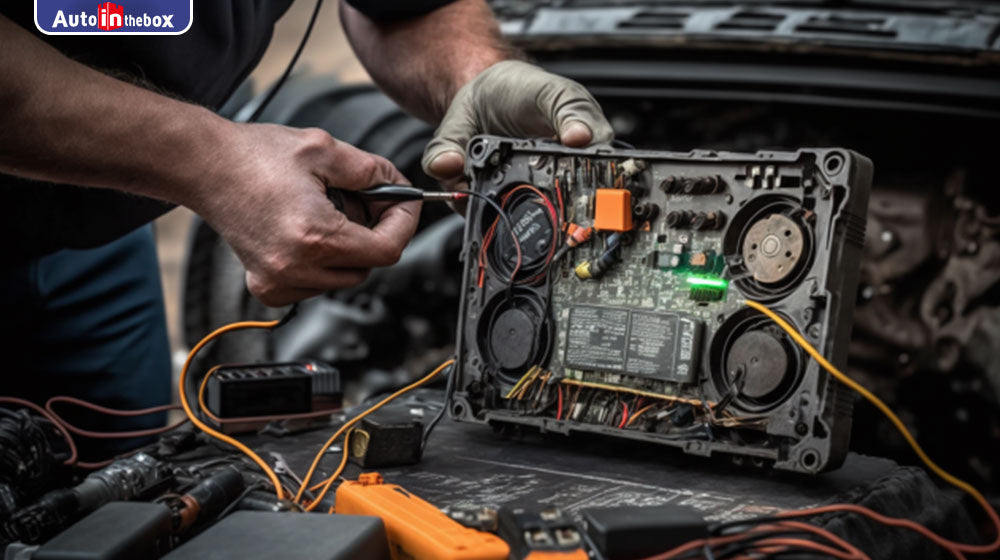 Newer Post
Newer Post
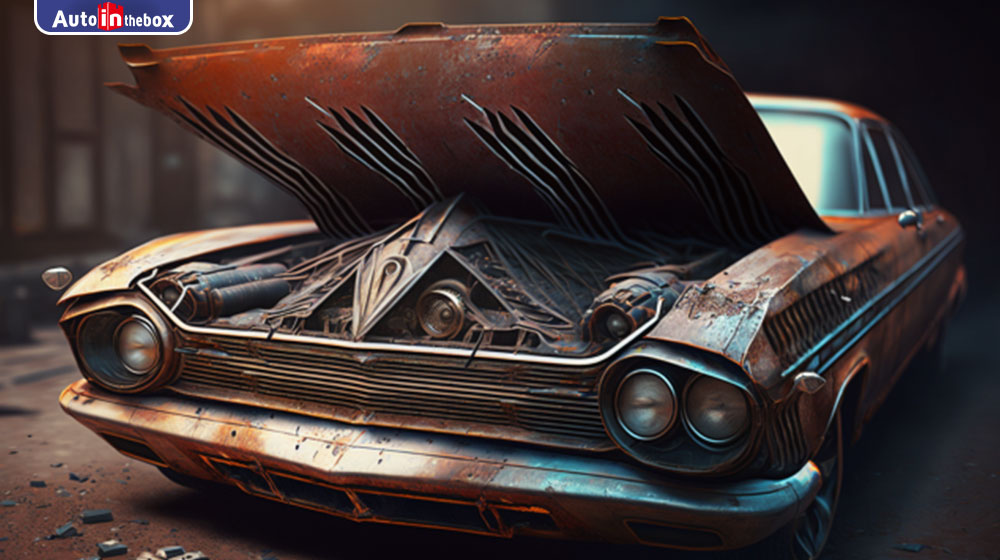
Can a faulty ECU be repaired? How Can I Tell If It's Faulty?

Why Won't Car Hood Close? How to fix it?




